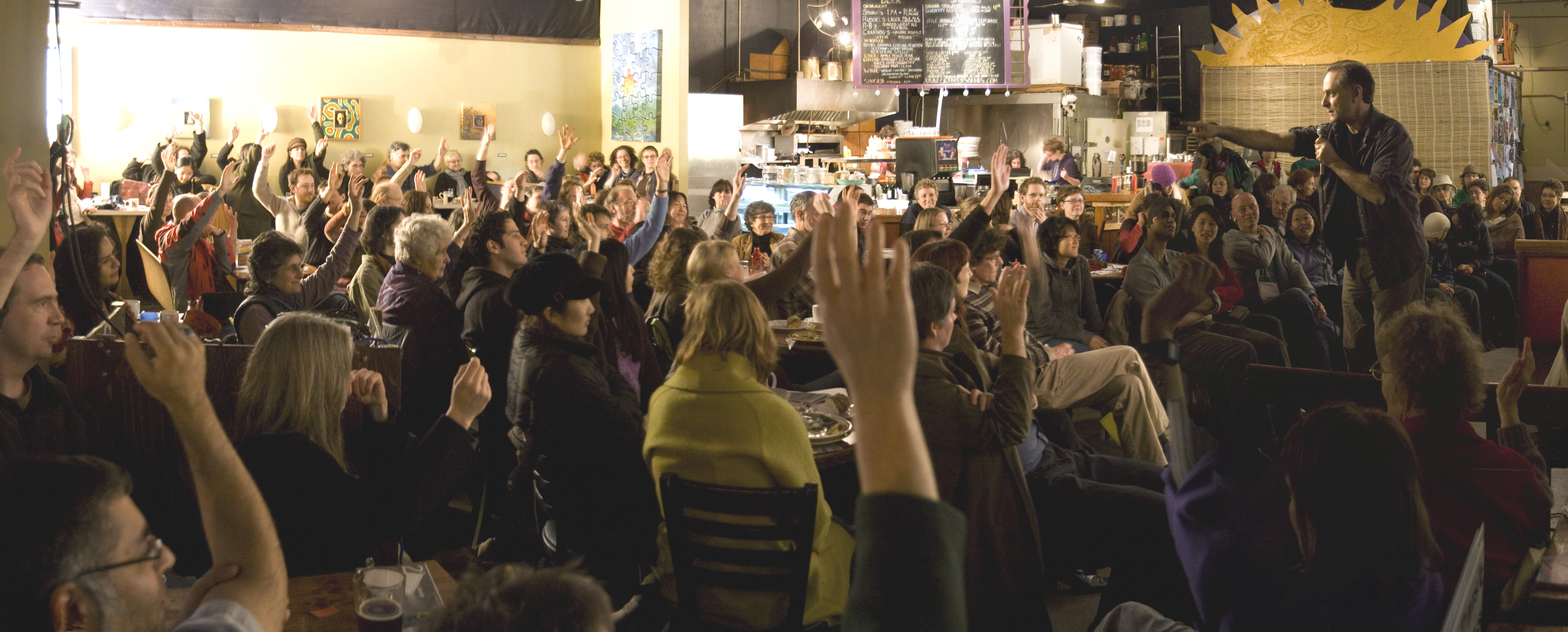This autumn, The Theatre for Living (Headlines Theatre) presents Corporations in our Heads, an audience-led play that is completely absent of scripts or designated actors. Its main mission: to provide insight into the various relationships we have with corporate culture and control in our daily lives.
Though impossible to clearly articulate, as the content is improvisational and ranges night to night, Artistic and Managing Director David Diamond explains “theatre is a language that belongs to everyone.”
Differing from perhaps every theatre performance you have ever been to, the B.C.- and Alberta-wide experimental performance tour will urge you to re-think your relationship to both economic power and traditional art and expression.
Putting its facilitation into the hands of the audience and breaking down the artificial walls between performer and observer, nightly content revolves around digging deeply into the power companies have over our ability to interact with one another and with the world around us.
Attendees who wish to participate have the opportunity to convey, through whatever means available, their reactions to corporate power in their daily lives, and how those reactions evolve into a collective understanding or debate.
Common themes and categories have emerged since the tour kicked off in Vancouver on October 10. It isn’t shocking that major names, such as Enbridge and themes of the oil and gas industry have emerged in the B.C. tour. Other themes include the beauty industry and the industrialized food industry with names like Lululemon, Mcdonalds and Monsanto appearing.
The growing reality and concern that government is a corporate wing, in and of itself, has also been brought up, along with the role of the education system in normalizing corporate culture for our youth.
This seemingly non-traditional form of art and activism originated in what Diamond sees as the need to look at how “our behaviour creates structures that we inhabit,” and that we are not merely prisoners of structures that came out of nowhere. This corresponds to his hope that people leave with various insights into the way they consciously or unconsciously interact with corporations, whether they agree or disagree with the content of the night.
Though the play requires participation in order to work, Diamond wanted to emphasize that no one is pressured to participate on stage.
Some people may feel compelled as the event goes on, much to their own shock, but audience participation is not mandatory and people are free to participate solely by being present and taking it all in. Having fun and exposing the various reactions and effects corporate culture has on all of us on a personal level is what matters in this new-found form of theatre.
As people leave the event, perhaps more keen on recognizing the connection between messages that are healthy and financially viable for corporations and yet unhealthy for people and the earth, dialogue sets in. And this is where we are able to re-think our relationships to culture and within ourselves.
Stay tuned for the rest of the tour as it finishes in Vancouver the first week of December.
Photo: Tim Matheson



